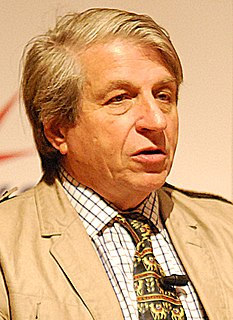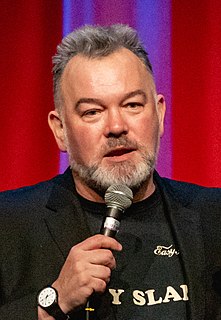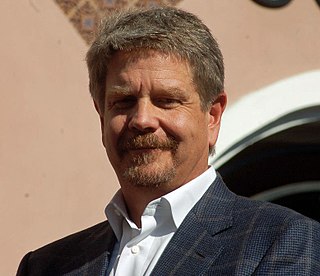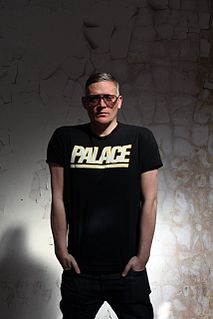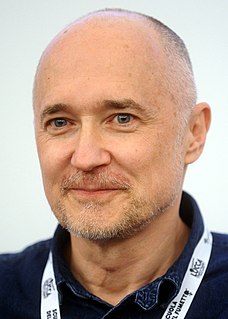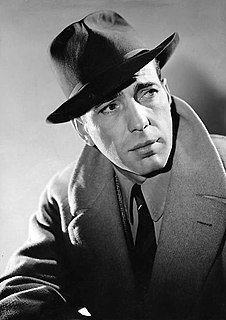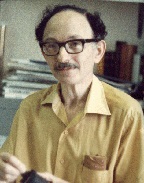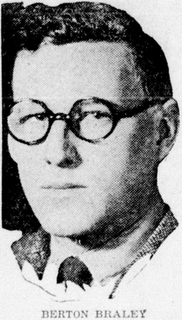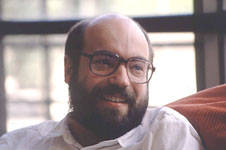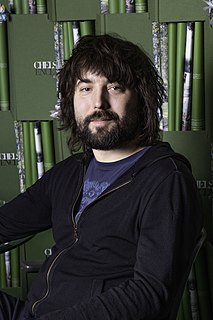Top 1200 Product Design Quotes & Sayings - Page 15
Explore popular Product Design quotes.
Last updated on November 15, 2024.
The company that employed me strived only to serve up the cheapest fare that the customer would tolerate, churn it out as fast as possible, and charge as much as they could get away with. If it were possible to do so, the company would sell what all businesses of its kind dream about selling, creating that which all of our efforts were tacitly supposed to achieve: the ultimate product -- Nothing. And for this product they would command the ultimate price -- Everything.
When people discuss his plays, he says that he feels like he's standing at customs watching an official ransack his luggage. He cheerfully declares responsibility for a play about two people, and suddenly the officer is finding all manner of exotic contraband like the nature of God and identity, and while he can't deny that they're there, he can't for the life of him remember putting them there. In the end, a play is not the product of an idea; an idea is the product of a play.
I am trying to represent design through drawing. I have always drawn things to a high degree of detail. That is not an ideological position I hold on drawing but is rather an expression of my desire to design and by extension to build. This has often been mistaken as a fetish I have for drawing: of drawing for drawing’s sake, for the love of drawing. Never. Never. Yes, I love making a beautiful, well-crafted drawing, but I love it only because of the amount of information a precise drawing provides
The critical thing about the design process is to identify your scarcest resource. Despite what you may think, that very often is not money. For example, in a NASA moon shot, money is abundant but lightness is scarce; every ounce of weight requires tons of material below. On the design of a beach vacation home, the limitation may be your ocean-front footage. You have to make sure your whole team understands what scarce resource you're optimizing.
McWorld is a product of popular culture driven by expansionist commerce. Its template is American, its form style. Its goods are as much images as matériel, an aesthetic as well as a product line. It is about culture as commodity, apparel as ideology. Its symbols are Harley-Davidson motorcycles and Cadillac motorcars hoisted from the roadways, where they once represented a mode of transportation, to the marquees of global market cafés like Harley-Davidson's and the Hard Rock where they become icons of lifestyle.
When I'm teaching, I tell the story of this painting for two reasons. First of all, if you want a good solid color structure, you have to have a solid development in values, dark and light. Second, if you have a good design, don't leave it if you fail to render it to its full extent the first time around. Remember it's the design that's important. Try and try till you get the thing to work. That's why The Pattern Makers is a key picture in my painting career.
One of the great things about design is that it's truly international. No one in the design industry would say, "This country is mine," or "I will make it look this way because it's for an American market and that way for a Chinese market." If you look at all of the Apple products, they are the same everywhere . . . I mean, I can't deny that I love traveling. It's a very healthy thing to be able to appreciate other cultures - or at least witness them firsthand. And all of that goes into helping someone be a good designer, because it's an international business.
The widespread inability to understand technological artifacts as fabricated entities, as social and cultural phenomena, derives from the fact that in retrospect only those technologies that prove functional for a culture and can be integrated into everyday life are 'left over.' However, the perception of what is functional, successful and useful is itself the product of social and cultural--and last but not least--political and economic processes. Selection processes and abandoned products and product forms are usually not discussed.
If you have a strong business idea, then it is comparatively easy now to get capital. It is a positive thing that increasingly more people want to join the startup bandwagon. However, to build a successful business, focus on creating more value through the product, and direct your efforts on solving real issues. If you manage to build a sustainable product, revenue will follow. A lot of startups fail because they concentrate on incremental innovations, increasing user base, and monetisation before strengthening the core of their business.
In the past few months I've become religious, I've started to believe in god, creationism and intelligent design, and the reason that I now believe in god and creationism and intelligent design is because of Professor Richard Dawkins. Because when I look at something as complex and intricate and beautiful as Professor Richard Dawkins, I don't think that just could've evolved by chance! Professor Richard Dawkins was put there by god to test us, like fossils. And facts.
We have this highly irrational system of incentivizing innovation for clean and green technologies, where we allow the innovator to have a temporary monopoly and then mark up the price of the product or sell licenses at high prices to those who want to use the kind of product that the innovator has invented. This system is collectively irrational because many people, to avoid the inflated prices of still-patented cleaner and greener technologies, opt for some older technology that is much more polluting.
This product that was on TV was available for four easy payments of $19.95. I would like a product that was available for three easy payments and one complicated payment. We can't tell you which payment it is, but one of these payments is going to be hard. The mailman will get shot, the envelope will not seal, the stamp will be in the wrong denomination. The final payment must be made in wampum.
Yes, I share your concern: how to program well -though a teachable topic- is hardly taught. The situation is similar to that in mathematics, where the explicit curriculum is confined to mathematical results; how to do mathematics is something the student must absorb by osmosis, so to speak. One reason for preferring symbol-manipulating, calculating arguments is that their design is much better teachable than the design of verbal/pictorial arguments. Large-scale introduction of courses on such calculational methodology, however, would encounter unsurmoutable political problems.
I do feel that the world is entering into a period of the incredible period of reflection and introspection. A lot of people are questioning the future, and I can't help but think that's a positive thing. I'm not sure about the art world, but the design world may be able to offer some solutions. Design is about troubleshooting. As a designer, I ultimately feel like a gun for hire. Companies hire me because they've got a problem. That's kind of what it boils down to. And I think this is a moment in our history where we need different solutions.
I've been working on a graphic about carbon emissions. It's an incredibly simple graphic - a bunch of blocks and a table below it - but it's taken me three weeks to design. For some reason it just wasn't working. Then finally I realized there was a number present, which I was rendering in each version, that wasn't necessary for the understanding of the piece. This figure was getting in the way and distracting from the main flow of the narrative. As soon as I pulled that graphic out of the design, it sprang into focus. Suddenly it worked.
When Henry Ford decided to produce his famous V-8 motor, he chose to build an engine with the entire eight cylinders cast in one block, and instructed his engineers to produce a design for the engine. The design was placed on paper, but the engineers agreed, to a man, that it was simply impossible to cast an eight-cylinder engine-block in one piece. Ford replied,''Produce it anyway.
I like the fact that I like to think out-of-the-box. Thinking out-of-the-box goes along with dressing out-of-the-box and living out-of-the-box. If you want to come up with a really original design idea and you want to capture a whole new design direction, perhaps the best way to arrive at that is not by acting and thinking and doing like everybody else. That's all.
The only reason I was able to accomplish things is the great people willing to work with me. A company is a group of people organized to create a product or service, and that product or service is only as good as the people in the company - and how excited they are about creating it. I do want to recognize a ton of super-talented people. Without them, I would have accomplished very little. I just happen to be the face of the companies.
Most people assume because I'm an actor that's all I know about and care about, I'm actually a camera geek and a film geek. I grew up making short films the same time I was acting. For me, it's a motion picture, not a play. I'm just as interested in what the camera department is doing and world building through costume design and production design as I am in acting. I think all good directors do that whether they're an actor or not.
I do think there is a lot of potential if you have a compelling product and people are willing to pay a premium for that. I think that is what Apple has shown. You can buy a much cheaper cell phone or laptop, but Apple's product is so much better than the alternative, and people are willing to pay that premium.
In film, it's up to the director to tell the story in whatever way he sees fit, and however you fit into that ultimate vision is where you fit in. So what you did on that stage, on that set, may not be what you ultimately see when you see the final product. And TV works so fast, it works so fast, it's just about product. The average TV show, one episode shoots eight, 10 days. That's it. You get three or four takes for a scene, and then it's over. But people do it for the money.
The argument from design is ultimately an appeal to miraculous causes, i.e., causes that do not, and cannot, occur in the natural course of events. This is why an explanation via design is not a legitimate alternative to scientific and other naturalistic modes of explanation. To refer to a miraculous cause is to refer to something that is inherently unknowable, and this sanctuary of ignorance explains nothing at all. However much it may soothe the imagination of the ignorant, it does nothing to satisfy the understanding of a rational person.
Language designers want to design the perfect language. They want to be able to say, 'My language is perfect. It can do everything.' But it's just plain impossible to design a perfect language, because there are two ways to look at a language. One way is by looking at what can be done with that language. The other is by looking at how we feel using that language-how we feel while programming.
We're going to bring a lot of money in on trade. We're going to bring a lot of money on reciprocal. You know, as an example, when you have countries with a big tax and we get nothing for the same product and we're paying - our companies are paying 100 percent tax in some countries and if they send their product to us we pay nothing. Doesn't make sense.
Numbers are the product of counting. Quantities are the product of measurement. This means that numbers can conceivably be accurate because there is a discontinuity between each integer and the next. Between two and three there is a jump. In the case of quantity, there is no such jump; and because jump is missing in the world of quantity, it is impossible for any quantity to be exact. You can have exactly three tomatoes. You can never have exactly three gallons of water. Always quantity is approximate.
Making money isn't the main point of business. Money is a by-product.... A new product has been found, something of use to the world. A new industry moves into an undeveloped area. Factories go up, machines go in and you're in business. It's coincidental that people who've never seen a dime now have a dollar and barefooted kids wear shoes and have their faces washed. What's wrong with an urge that gives people libraries, hospitals, baseball diamonds and movies on a Saturday night?
When you write comic books and when you are writing for television, you're not writing the end product, you are writing notes for someone else to make the end product essentially. My scripts are just directions for the artist to draw pages and the pages are what is seen. I kind of feel like it's a safety net, you're able to hide behind the art to a certain extent, and in television you're able to hide behind the actors and the production, but with novels, your words are it
If God is watching us, as some believers suggest, as though we were a television show and God had a lot of free time, the deity would surely be bemused by how dumbed-down devotion has sometimes become in this so-called modern era. How might an omnipotent being with the long view of history respond to those who visit the traveling exhibit of a grilled-cheese sandwich, sold on eBay, that is said to bear the image of the Virgin Mary? It certainly argues against intelligent design, or at least intelligent design in humans.
In the new American ghetto, the nightmare engine is bubble economics, a kind of high-tech casino scam that kills neighborhoods just like dope does, only the product is credit, not crack or heroin. It concentrates the money of the population in just a few hands with brutal efficiency, just like narco-business, and just as in narco-business the product itself, debt, steadily demoralizes the customer to the point where he’s unable to prevent himself from being continually dominated.
Building places that are worth living in and worth caring about require a certain attention to detail, and of a particular kind of detail that we have forgotten how to design and assemble. And that involves the relationship of the buildings to each other, the relationship of the buildings to the public space, which in America, comes mostly in the form of the street. Because it's only the exceptional places in America that have the village square or the New England green. You know. The street is mostly the public realm of America. And we have to design these things so that they reward us.
It is not competition, but monopoly, that deprives labor of its product. Destroy the banking monopoly, establish freedom in finance, and down will go interest on money through the beneficent influence of competition. Capital will be set free, business will flourish, new enterprises will start, labor will be in demand, and gradually the wages of labor will rise to a level with its product.
And when you get an eminent journal like Time magazine complaining, as it often has, that to the young writers of today life seems short on rewards and that what they write is a product of their own neuroses, in its silly way the magazine is merely stating the status quo and obvious truth. The good writing of any age has always been the product of someone's neurosis, and we'd have a mighty dull literature if all the writers that came along were a bunch of happy chuckleheads.
Rather, the master question from which the mission of education research is derived: What should be taught to whom, and with what pedagogical object in mind? That master question is threefold: what, to whom, and how? Education research, under such a dispensation, becomes an adjunct of educational planning and design. It becomes design research in the sense that it explores possible ways in which educational objectives can be formulated and carried out in the light of cultural objectives and values in the broad.
There's no question here that every effort is made to earn as much money off tobacco as possible. At the same time, the same people who are doing everything they can to get every penny out of this product, are condemning its use, are bludgeoning and impugning its users, and denying them every day more and more places where they can legally use the product. In the process, they have been the architects of the black market. The people in charge of all this have themselves set the stage for black market circumstances to prosper and thrive.
Let an ultraintelligent machine be defined as a machine that can far surpass all the intellectual activities of any man however clever. Since the design of machines is one of these intellectual activities, an ultraintelligent machine could design even better machines; there would then unquestionably be an 'intelligence explosion,' and the intelligence of man would be left far behind. Thus the first ultraintelligent machine is the last invention that man need ever make.
I'm so immersed in my little world that I don't often sit back and pay attention to what's going on around me. It truly stuns me when people recognize me. Obviously, I'm not a film star, but even at a design exhibition or art exhibition, if someone comes up to me, I'm sort of taken aback. I don't think of myself like that. But if I can have an effect on young designers, that's great - particularly young designers coming from Australia. Europeans grew up with design. The rest of us lived on tidbits of information.
I honestly believe that sound commercialism is the best test of true value in art. People work hard for their money and if they won't part with it for your product the chances are that your product hasn't sufficient value. An artist or writer hasn't any monopoly .... If the public response to his artistry is lacking, he'd do well to spend more time analyzing what's the matter with his work, and less time figuring what's the matter with the public.
If drugs were legalized in the US, the Mexican economy would collapse since the earnings from drugs bring in more hard currency than its largest licit source, oil sales. Mexico is a corrupt state that has now become dependent on the earnings on an illegal product. But inevitably, the product will become legal and then Mexico will retain its corruption but must face the needs of its citizens now employed by the drug industry who have become steeped in violence and conditioned to higher incomes.
If there's a group like Amish people, that want to live their own lifestyle – they don't want to live in our city – they want to live out in the country, with their own projects. We’ll put up the buildings for them, design the buildings for them, design the food production systems for them – if they want us to. But we don’t control them.
For thirty years most interface design, and most comptuer design, has been headed down the path of the "dramatic" machine. Its highest idea is to make a computer so exciting, so wonderful, so interesting, that we never want to be without it. A less-traveled path I call the "invisible"; its highest idea is to make a computer so imbedded, so fitting, so natural, that we use it without even thinking about it.
I think the critical thing is the product or service that you're trying to raise money for. And probably the best description of that, people should say when they hear, "This is what I want to do. This is what I want to bring to the market." They should say, "Gee! That's a great idea" or "Gee! Why hasn't somebody else thought of that before? Well, that's an incredible idea!" In other words, the more a person is delighted, or astonished, or happy with your product, or service, or idea, the more happy they are to put up money for it.
I remember the few times that happened to me in writing, where you basically start writing and you look at the clock and six hours have gone by and you're, like, "Whoa! What the hell just happened?" And that piece ends up in the final product even though the final product is three years away. It doesn't get rewritten. It came out the right way. But that's happened to me so few times in my life.
Entrepreneurs don't really make mistakes, though. We just make decisions that seem right at the time, but which sometimes turn out to have been the wrong path to take. For example, we allowed a buyer to place a huge opening order and later had to take some product back. We didn't have our sell-through programs in place, so in hindsight, it would have been wiser to sell in less product at the outset. The scary thing is you are always making decisions without knowing the future.




